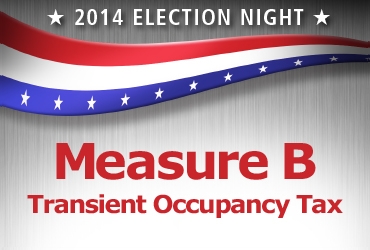Palo Alto voters gave their leaders a boost in solving the city's infrastructure problems on Election Day, overwhelmingly supporting a proposal to raise the city's hotel tax rate from 12 percent to 14 percent.
The change was heading for an emphatic victory, with more than 76 percent of the voters supporting it, according to results from absentee results.
Though the tax hike garnered opposition from the local Chamber of Commerce, it also had the endorsement of the entire council, which sees Measure B as a major component of a recently approved plan to fund infrastructure.
The city expects the tax increase to generate additional revenues of about $2.2 million a year, with the proceeds earmarked for infrastructure projects and repairs. When added to revenue expected from new hotels, the city is expected to get about $4.6 million annually, which would be leveraged to get $64.6 million for projects that include a new bike bridge over U.S. Highway 101, rebuilt fire stations near Rinconada and Mitchell parks and new garages downtown and near California Avenue.
The proposal to raise the tax rate has been opposed by the Chamber of Commerce but has not stirred much community debate in the weeks leading up to Election Day. The entire council supports raising the tax, though members quibbled in May over whether the new rate should be 14 percent or 15 percent. After the lower hike narrowly prevailed, the council unanimously voted to place it on the ballot.
With Measure B poised to easily pass, Palo Alto's hotel-tax rate will now be on par with rates in San Francisco and Oakland.
The city last raised its hotel-tax rate in 2007, when voters approved changing it from 10 percent to its current level of 12 percent.
In addition to the hotel tax measure, voters approved Measure C, which eliminates a discounted tax rate for large commercial users. The measure also specifies that the tax applies to a broader range of telecommunication technologies and reduces the tax rate from 5 percent to 4.75 percent. Early returns showed more than 85 percent of the voters backing Measure C.



Comments